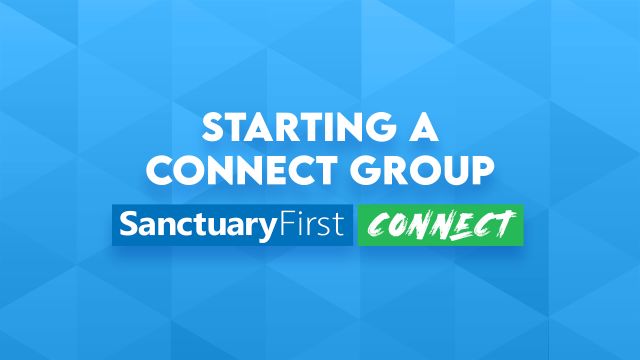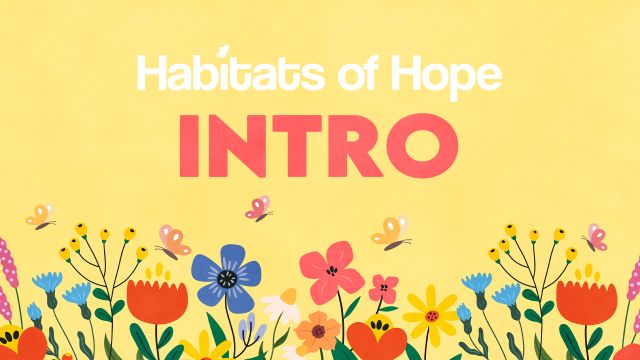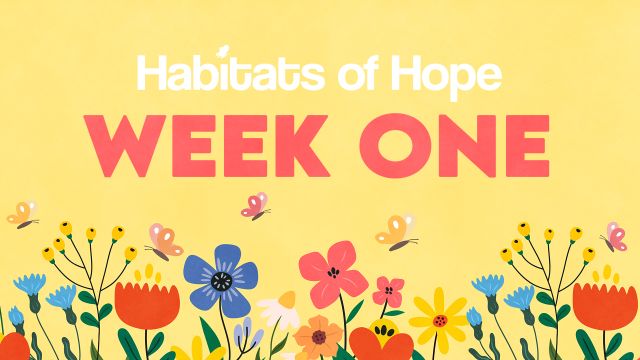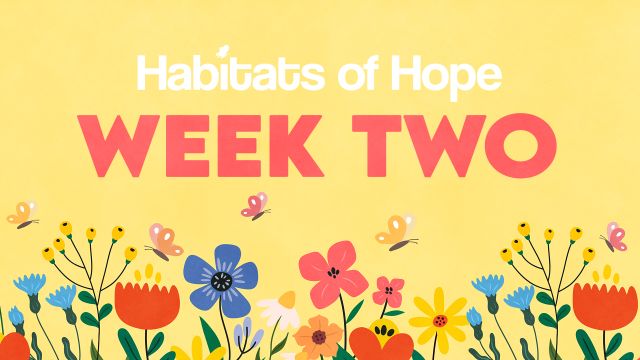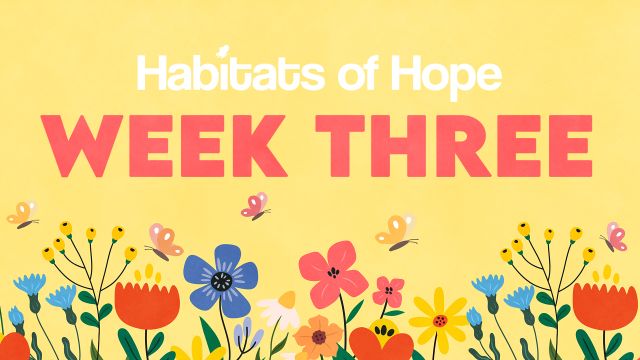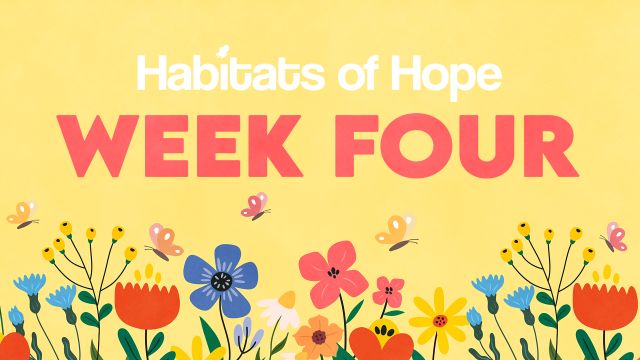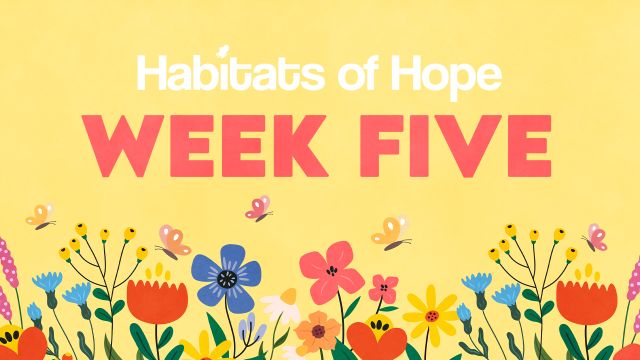Habitats of Hope - Connect Groups
Week Three
Homes of Hope
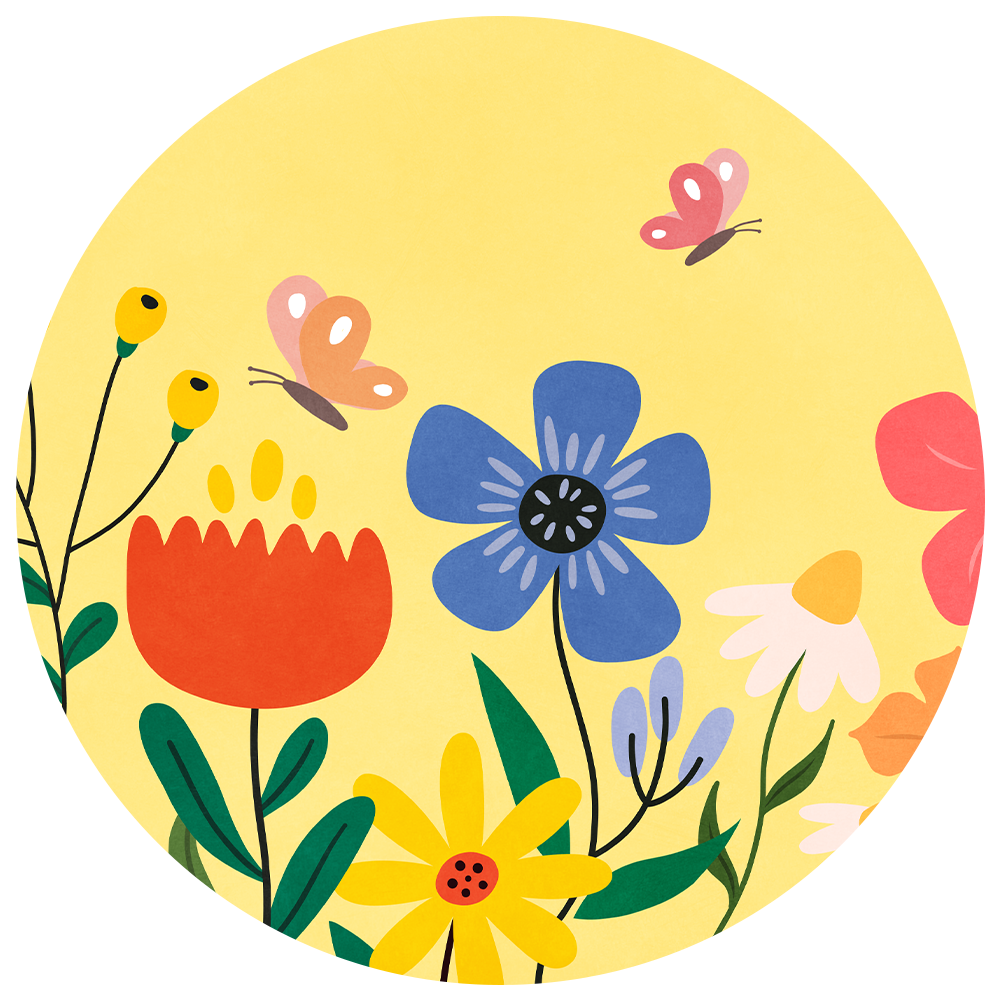 The vision we are given in Psalm 85 of righteousness and peace kissing is a tender image of restoration and togetherness. When righteousness and peace are kept apart: conflict and inequality rise.
The vision we are given in Psalm 85 of righteousness and peace kissing is a tender image of restoration and togetherness. When righteousness and peace are kept apart: conflict and inequality rise.
Peace isn’t simply the absence of war, it’s the presence of something: a habitat where the qualities of peacefulness can blossom.
Peace requires righteousness - people acting with goodness, virtue and integrity. The unrighteousness of millions of people displaced from their homes through war, catastrophe and crop failure; of homelessness and inadequate housing; of unfair systems that punish the poor for being poor; make it incredibly hard to foster peace.
Rather than just wallowing in the doom and gloom, how can we recognise the pain of our world but also do something positive about it? How can we make a world with homes of hope for all?
SEEDS TO SOW:
WHEN DID YOU LAST FEEL ‘UPROOTED’? WHEN DID YOU LAST GO THROUGH AN ‘UPHEAVAL'? AND WHEN DID YOU LAST FEEL ‘UPLIFTED’? *
Read Genesis 37:1-4, 12-28 & Psalm 105: 1-6, 16-22, 45b
Uprooting, upheaval, uplifting.
What does the concept of ‘home’ mean over the course of Joseph’s story?
Read 1 Kings 19: 9-15
On the run, in the quiet.
What interests you, confuses you or challenges you about this passage?
And who today in our world is on the move and needs to hear God in the stillness?
Read Jeremiah 12: 1-4 & Psalm 85: 8-13
The land mourns.
In the psalm righteousness and peace kiss, a vision of security and justice and mercy for all. For peace without righteousness isn’t really peace and righteousness without peace isn’t really righteousness. Which takes us to our Jeremiah reading where prosperity for some does not mean peace for all.
Jeremiah’s complaint contains a very human plea to God: “Why do good things happen to bad people?”And why does the land have to mourn while people exploit it? The poetic point is underlined by biological reality, our actions do have consequences for the soil under our feet. Why does God give us the freewill to mess up ecosystems, why doesn’t God reverse climate change? Why do people live comfortable lives in exchange for making the lives of others miserable?
These questions don’t have easy answers, but through asking them we look to learn more about how to recapture hope and work towards restoring habitats of hope.
* SEEDS TO SOW: These are open-ended and optional prompts and are designed for people wanting to develop their own resources in response to the themes. Perhaps if you are using this material as a group you could use these prompts to inspire a time of prayer, or drawing, or creative writing? They are a short and sweet, simply a starting off place for you and your imagination. Tailor and develop as suits your group.




